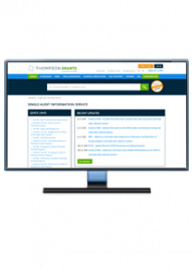Sneak Preview: GAO Calls for Child Welfare Information Sharing

(The following was excerpted from a recent article in the Federal Grants Development Handbook.) Although officials with the Department of Health and Human Services (HHS) did not agree with recent Government Accountability Office (GAO) recommendations to require that HHS agencies share information and best practices with states participating in federally funded family caregiver programs, stating that they are currently taking adequate steps to assist states, GAO stood by its recommendation calling for more proactive federal agency measures.
According to GAO, about 2.7 million children in 2018 lived with their grandparents, other relatives or close family friends because their parents were unable to care for them. Federal assistance for grandparent and relative caregivers is available through multiple optional programs under Title IV-E of the Social Security Act, including the Title IV-E Guardianship Assistance Program, the Title IV-E Kinship Navigator Program, and other programs such as the National Family Caregiver Support Program. These programs are overseen by HHS’ Administration for Children and Families (ACF) and Administration for Community Living (ACL), which primarily provide written program implementation guidance, and offer technical assistance and information sharing through their regional offices.
While these programs can help link relative caregivers to needed services and supports in their communities, GAO found that these caregivers face a range of challenges in fulfilling this often-unexpected role. “Older kin caregivers may be particularly vulnerable, given age-related health and financial challenges that compound challenges directly related to caregiving,” it said.
ACF and ACL provide support to states implementing relative caregiver programs and initiatives, but many states are not using this assistance as much as they could, if at all, GAO determined. Every state that applied in federal fiscal year (FY) 2019 received federal grant formula funding to develop, enhance or implement a Kinship Navigator Program under Title IV-B of the Social Security Act, but ACF did not approve any such program for Title IV-E funding as of March 2020 because the states’ programs had not been found to meet the evidence-based requirements to qualify for Title IV-E reimbursement.
(The full version of this story has now been made available to all for a limited time here.)
Join us for our following Federal Grants Forums:
Nonprofit Finance & Grants Summit | September 14-16, 2020
Federal Grants Forum: Denver, CO | October 7-9, 2020
Learn more at http://grants.thompson.com/conferences.aspx.



